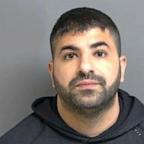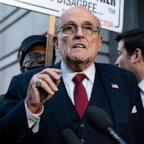Malala Yousafzai: 'Death Did Not Want to Kill Me'
Exclusive interview with girl who is an international symbol of courage.
Oct. 6, 2013— -- A year ago this week 15-year-old Malala Yousafzai was brutally attacked on her way home from school -- shot in the head at point-blank range by the Taliban.
One year later, the shot heard round the world has given birth to a movement of change -- a movement to educate girls, and the little girl from Swat Valley in Pakistan has become an international symbol of courage and hope.
"In some parts of the world, students are going to school every day. It's their normal life," Malala told Diane Sawyer in an exclusive interview for ABC News. "But in other part of the world, we are starving for education ... it's like a precious gift. It's like a diamond."
A diamond she was willing to risk her life for.
Malala was 11 years old when the Taliban came to her hometown in Swat Valley in northwest Pakistan. Suddenly fear was everywhere. The town's public square was nicknamed "Slaughter Square" because of all the beheadings and corpses. Women were publicly flogged. And Malala's own father was targeted for death because he spoke out against the Taliban and for educating girls.
"At night when I used to sleep, I was thinking all the time that shall I put a knife under my pillow," Malala told Sawyer. "The time was of fear, but some people can overcome fear and some people can fight fear."
And while others cowered in fear, Malala -- named for a famous Afghan woman warrior -- was filled with courage. When the Taliban issued an edict banning all girls from going to school, she spoke up when no one else would. She blogged about the Taliban attacks on schools for the BBC, and even appeared in a New York Times documentary, saying defiantly: "They cannot stop me. I will get my education -- if it is in home, school, or anyplace."
Even though she knew there had been threats made against her, she says she never expected the Taliban to harm a young girl. But she did rehearse in her own mind what she would do if attacked.
"It was always my desire before the attack that if a man comes ... I would tell that man that education is very important," Malala told Sawyer. "I will tell that man that I even want education for your daughter."
"And you think that would work against a gun?" Sawyer asked.
"I thought that words and books and pens are more powerful than guns," Malala answered.
And on Oct. 9, as she and her friends were singing on the way home, playing the sides of her school bus like a drum, she never imagined that the young man who boarded the bus and asked "Who is Malala?" was an assassin sent by the Taliban to kill her.
"On the day when I was shot, all of my friends' faces were covered, except mine," Malala said.
"It was brave, but was it wise?" Sawyer asked Malala.
Malala answered: "At that time, I was not worried about myself. I wanted to live my life as I want. "
She doesn't remember the man pointing his Colt .45 and firing three bullets at point blank range, but her best friend told her: "You said nothing and you were just for -- you were just holding my hand and you just squeezed my hand, like you were just forcing it. And you said nothing."




